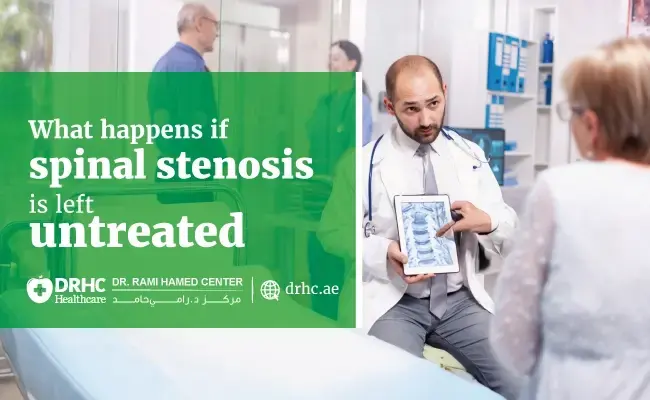
It’s not uncommon to experience some knee swelling after a long day, a workout, or a minor bump—but when that swelling becomes persistent, it’s a signal from your body that something may be wrong. At Dr. Rami Hamed Center (DRHC) in Dubai, we regularly see patients struggling with ongoing knee swelling, and we understand how frustrating and concerning it can be—especially when it starts affecting your mobility, sleep, or quality of life.
Let’s explore what persistent knee swelling could mean, what causes it, and how it can be treated effectively.
What Does Persistent Knee Swelling Mean?
Swelling in the knee—also called knee effusion or “water on the knee”—is the result of fluid buildup in or around the knee joint. While occasional swelling can resolve with rest, persistent swelling that lasts for weeks or keeps coming back may indicate an underlying issue such as:
- Inflammation
- Injury to soft tissues or cartilage
- Joint degeneration
- An internal imbalance in the knee’s normal function
Common Causes of Persistent Knee Swelling
There are several possible reasons for chronic or recurring swelling in the knee:
1. Osteoarthritis
This age-related “wear-and-tear” condition can lead to cartilage breakdown, joint inflammation, and fluid buildup. Swelling may come and go but tends to worsen over time without treatment.
2. Meniscus Tear
The meniscus is a piece of cartilage that cushions the knee. A tear—especially one that hasn’t healed properly—can cause irritation and ongoing swelling.
3. Ligament Injuries (e.g., ACL or MCL)
Even a partially torn ligament can lead to long-term instability and swelling. Athletes are particularly at risk, but these injuries can happen to anyone.
4. Rheumatoid Arthritis or Other Autoimmune Conditions
Inflammatory diseases can cause the immune system to mistakenly attack the joints, leading to chronic pain, swelling, and stiffness.
5. Gout or Pseudogout
These are forms of arthritis caused by the accumulation of crystals in the joint, often resulting in sudden, intense swelling and pain.
6. Bursitis
The bursa is a small fluid-filled sac that helps reduce friction in the knee. When inflamed, it can lead to visible swelling and discomfort.
When to See a Specialist
Mild swelling after activity isn’t unusual—but if you experience persistent swelling, redness, warmth, or difficulty walking, it’s time to get it evaluated. Ignoring ongoing symptoms could result in further joint damage or delay proper healing.
Diagnosis at DRHC Dubai
At DRHC Dubai, we take a comprehensive approach to evaluating knee swelling. This may include:
- Physical examination to assess range of motion and joint stability
- Imaging tests such as X-rays, MRI, or ultrasound to view internal structures
- Lab tests if an infection, gout, or autoimmune condition is suspected
Our team works to find the root cause—not just treat the symptom—so that we can offer you the most effective and least invasive solution.
Treatment Options for Persistent Knee Swelling
Treatment depends on the underlying cause, but the goal is always to relieve pain, reduce swelling, and restore function.
Conservative Management
- Rest, ice, compression, and elevation (R.I.C.E.)
- Anti-inflammatory medications
- Physiotherapy to strengthen supporting muscles and improve joint stability
- Lifestyle changes such as weight management or low-impact exercises
Injections
- Corticosteroid injections may be used to reduce inflammation in the joint
- Hyaluronic acid injections can help lubricate the joint, especially in osteoarthritis
Joint Aspiration (Arthrocentesis)
In some cases, fluid may need to be drained from the knee to reduce pressure and test for infection or crystals.
Arthroscopy or Surgical Options
If conservative treatment doesn’t bring relief, minimally invasive procedures like knee arthroscopy can be considered. These are often performed as daycare surgeries at DRHC Dubai, with a much quicker recovery compared to traditional surgery.
We understand that the idea of surgery can be overwhelming—but we’re here to walk you through it, answer your questions, and ensure you feel confident and informed every step of the way.
FAQs About Knee Swelling
“Is persistent swelling dangerous?”
It depends on the cause. While some cases are mild, untreated joint issues can lead to long-term damage. An early diagnosis is the best way to prevent complications.
“Can swelling go away on its own?”
Some minor swelling will resolve, but persistent or repeated swelling usually indicates an underlying issue that needs medical attention.
“Will I need surgery?”
Not always. Many patients respond well to conservative treatments. Surgery is considered only when necessary and is often minimally invasive.
“How long will recovery take?”
This varies depending on the cause and treatment. For arthroscopy, most people resume daily activities within a few weeks. Recovery is faster when treatment begins early.
A Personalized Approach at DRHC Dubai
Every knee is unique—and so is every patient. At Dr. Rami Hamed Center, we’re committed to providing personalized, compassionate care using the latest medical technology and expert guidance.
If persistent knee swelling is affecting your life, don’t wait. Early treatment can help you avoid further complications and get back to living comfortably.
Book your consultation at DRHC Dubai today, and let’s take the next step toward healthy, pain-free movement.
Call +97142798200 us now to schedule your consultation today!
Visit our Spine Center at DRHC Dubai – Located in Dubai Healthcare City
Topic: orthopedic Knee




.jpg)




Leave a comment